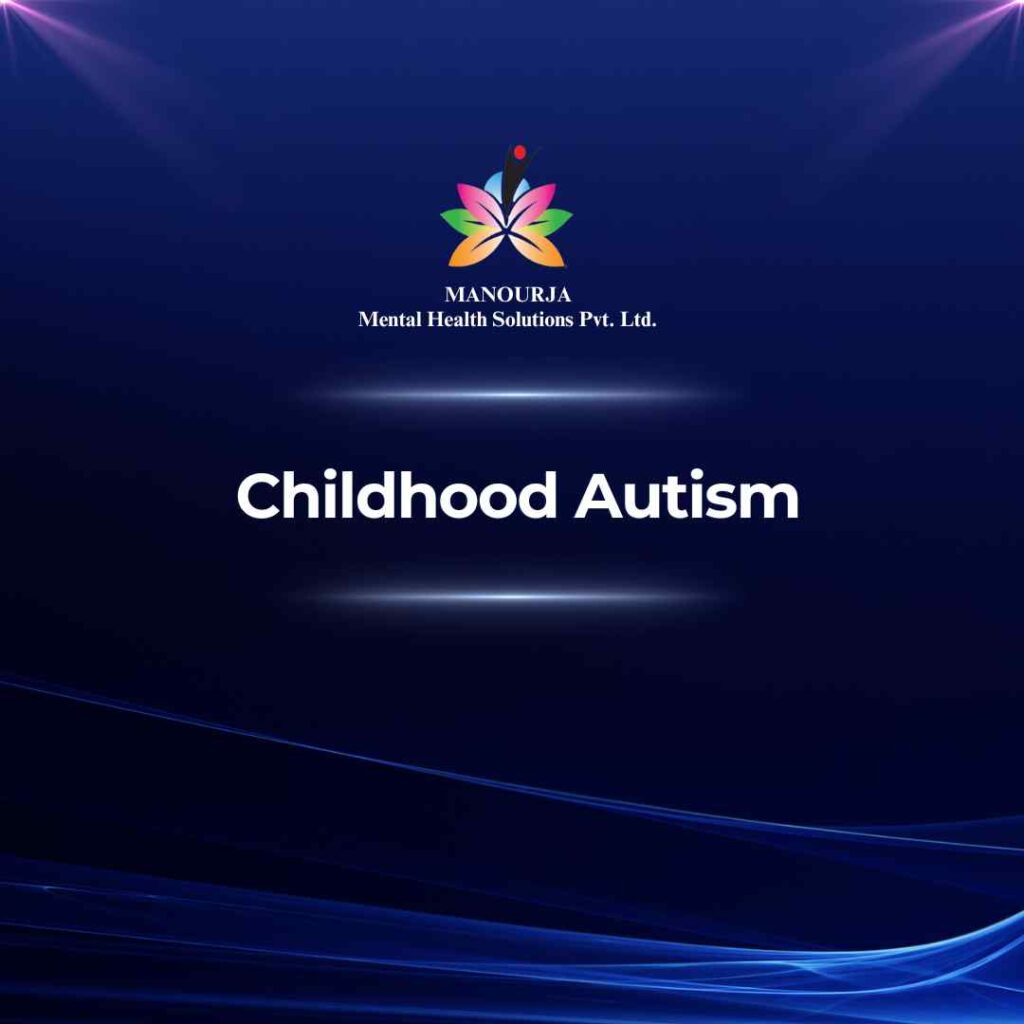Childhood Autism

Childhood autism, often referred to simply as autism, is classified within the broader category of Autism Spectrum Disorder (ASD) as defined in the latest editions of standard diagnostic manuals like the DSM-5. This developmental disorder appears in early childhood and is characterized by challenges in social interaction, communication, and the presence of repetitive behaviors or restricted interests.
Symptoms of Childhood Autism
- Social Interaction Difficulties: Challenges in understanding and engaging in social interactions, such as difficulty interpreting body language, facial expressions, and maintaining eye contact.
- Communication Issues: Problems may include delayed speech development, difficulty maintaining a conversation, repetitive use of language, or, in some cases, complete lack of speech.
- Repetitive Behaviors and Restricted Interests: Engaging in repetitive movements (such as rocking, spinning, hand-flapping), intense routines or rituals, and restricted interests that are abnormal in intensity or focus.
- Sensory Sensitivities: Unusual reactions to sensory inputs like sound, light, touch, which might include indifference or extreme responses to sensory stimuli.
Forms of Childhood Autism
Autism is a spectrum disorder, which means it can manifest differently in each individual. Forms of autism were previously classified as:
- Asperger’s Syndrome: Typically involving milder symptoms with no speech delay. Individuals often have good language skills but struggle with social interaction.
- Autistic Disorder: More classic form involving significant language delays, social and communication challenges, and repetitive behaviors.
- Pervasive Developmental Disorder – Not Otherwise Specified (PDD-NOS): For individuals who do not fully meet the criteria for autistic disorder or Asperger’s but show significant autism-like behaviors.
These subtypes are now unified under ASD in the DSM-5 to better reflect the continuum and overlap of symptoms rather than distinct categories.
Treatment of Childhood Autism
Treatment for childhood autism is highly personalized, based on the severity of the symptoms and the needs of the individual child. Common interventions include:
Behavioral Therapies:
- Applied Behavior Analysis (ABA): A widely used therapy that focuses on teaching specific skills and behaviors through reinforcement.
- Early Intensive Behavioral Intervention (EIBI): A type of ABA for very young children that involves intensive therapy hours focusing on behavioral and social skills.
Educational Therapies:
- Specialized educational programs are designed to meet the needs of children with ASD. These programs often include structured teaching methods and a focus on developing social skills and basic life skills.
Speech Therapy:
- Addresses communication difficulties and enhances the ability to form functional communication and interaction.
Occupational Therapy:
- Focuses on improving daily living skills and sensory integration, particularly for those with sensory sensitivities.
Social Skills Training:
- Helps children develop more appropriate social interactions. This can be done in a group setting to simulate real-life social situations.
Pharmacological Treatment:
- While there are no medications to cure autism, certain medications can help control symptoms, such as aggression, hyperactivity, and anxiety.
Family Support and Training:
- Providing education and support for families is crucial. Training for parents and siblings on handling the challenges of living with a person with autism can help improve the family dynamic and support system.
Conclusion
Childhood autism requires a comprehensive approach to treatment that involves the child’s educational, social, and behavioral development. Early diagnosis and intervention can lead to significant improvements, although most individuals with autism will continue to need some level of support throughout their lives. The focus of present treatments is on maximizing the child’s ability to function by reducing symptoms related to autism and supporting development and learning.
At MANOURJA, we believe in the transformative power of counseling. Our experienced therapists offer a safe and supportive space where you can explore your thoughts, emotions, and challenges. Through personalized counselling sessions, we’ll work together to develop coping strategies, build resilience, and achieve lasting positive change. Discover the path to a healthier, happier you with MANOURJA counselling services.
MANOURJA Rehabilitation Services
At MANOURJA, we’re dedicated to helping you in rebuild your life, after difficult times. Our rehabilitation services focus on understanding what you need to move forward, whether you’re recovering from addiction, trauma, or any psychological – social challenges. We create personalized plans, that are all about helping you, regain your strength and find hope again. With a caring team by your side, you’ll have the support to make real progress and take steps toward a brighter, healthier future.
